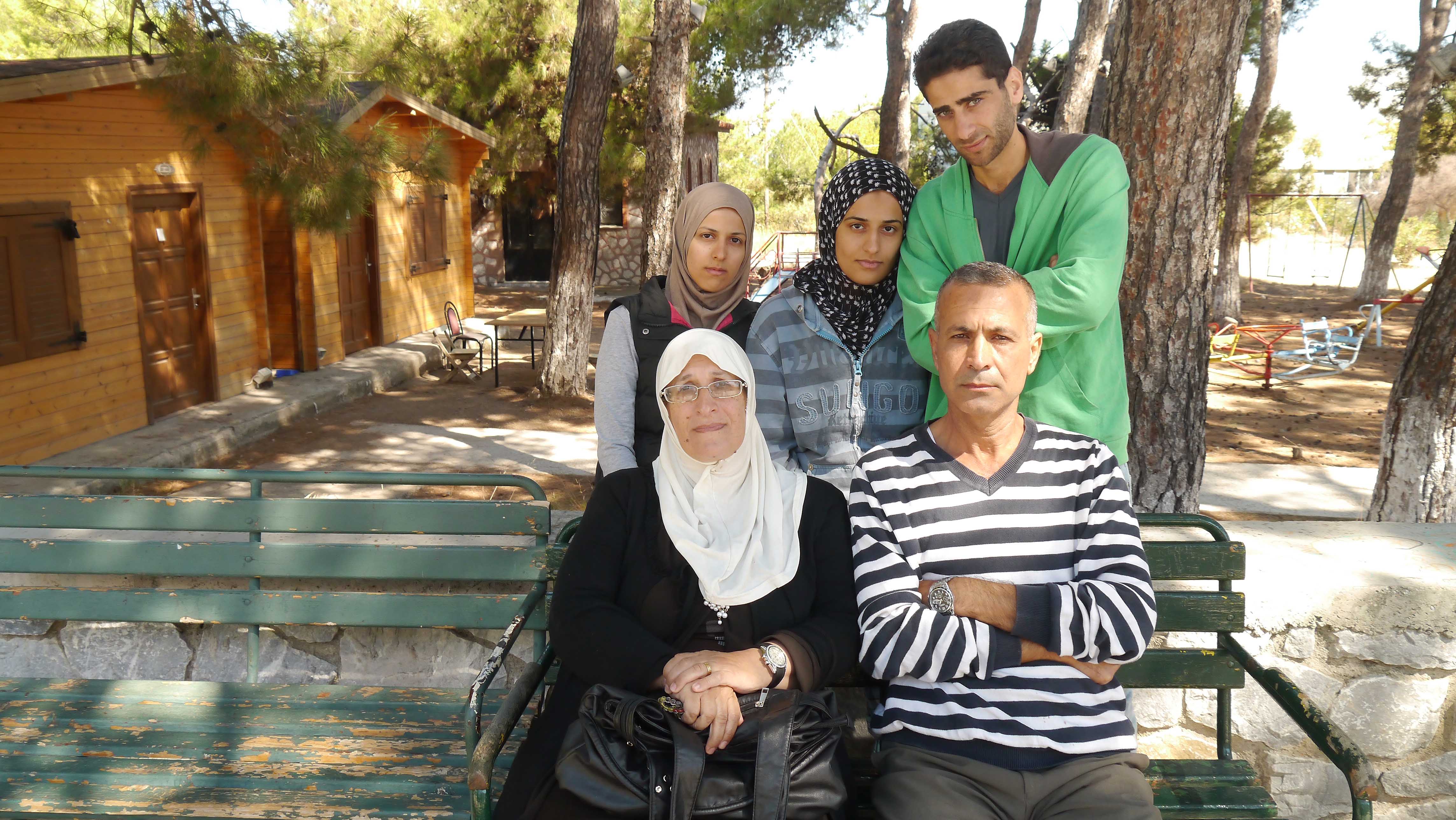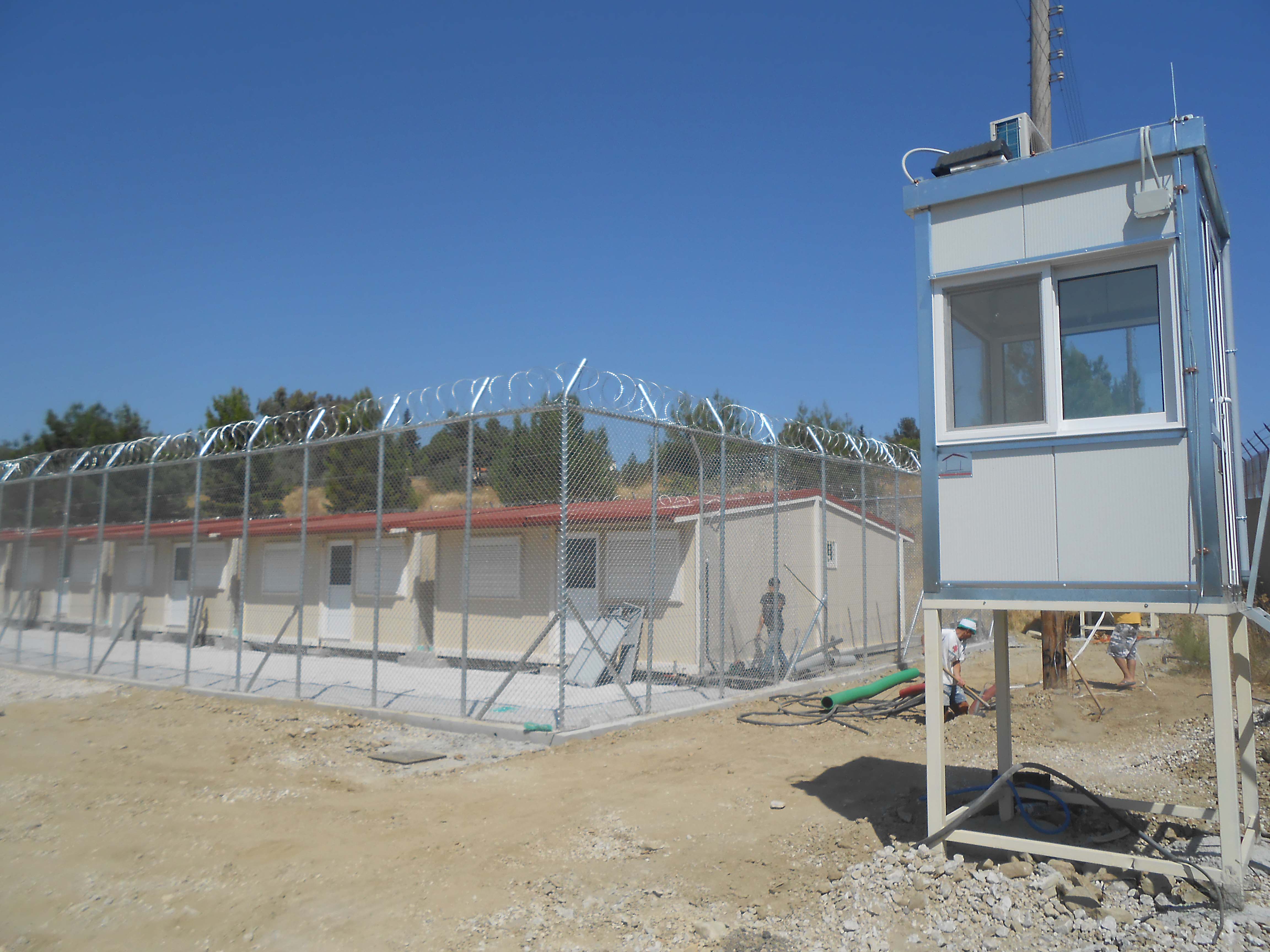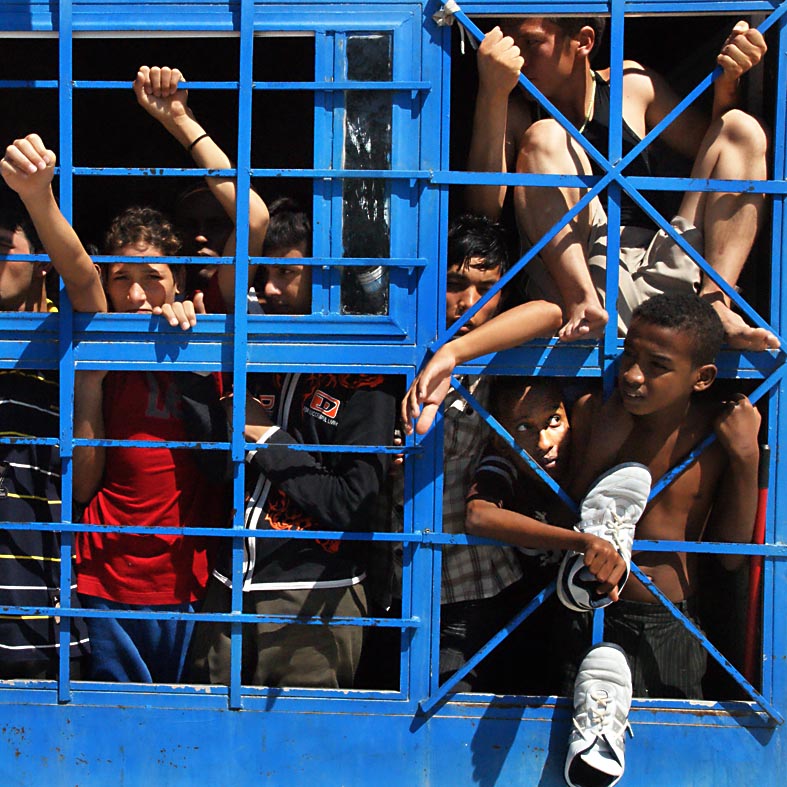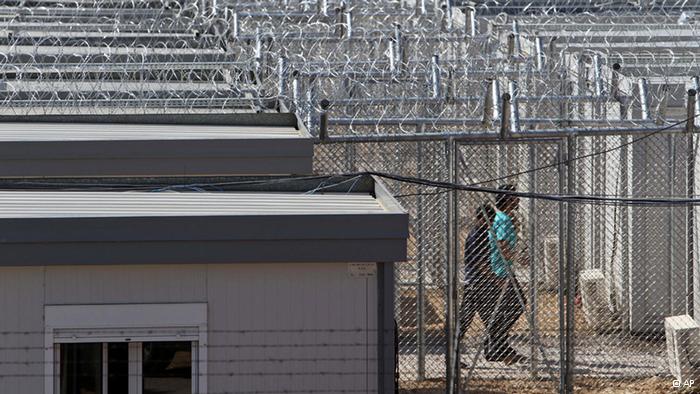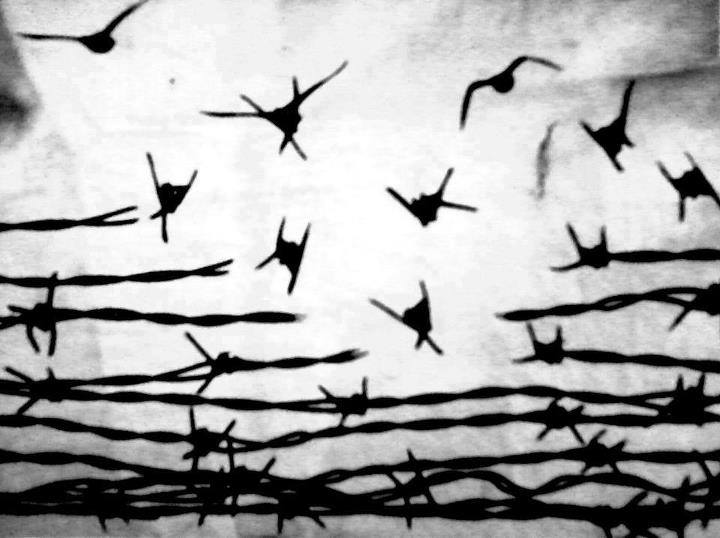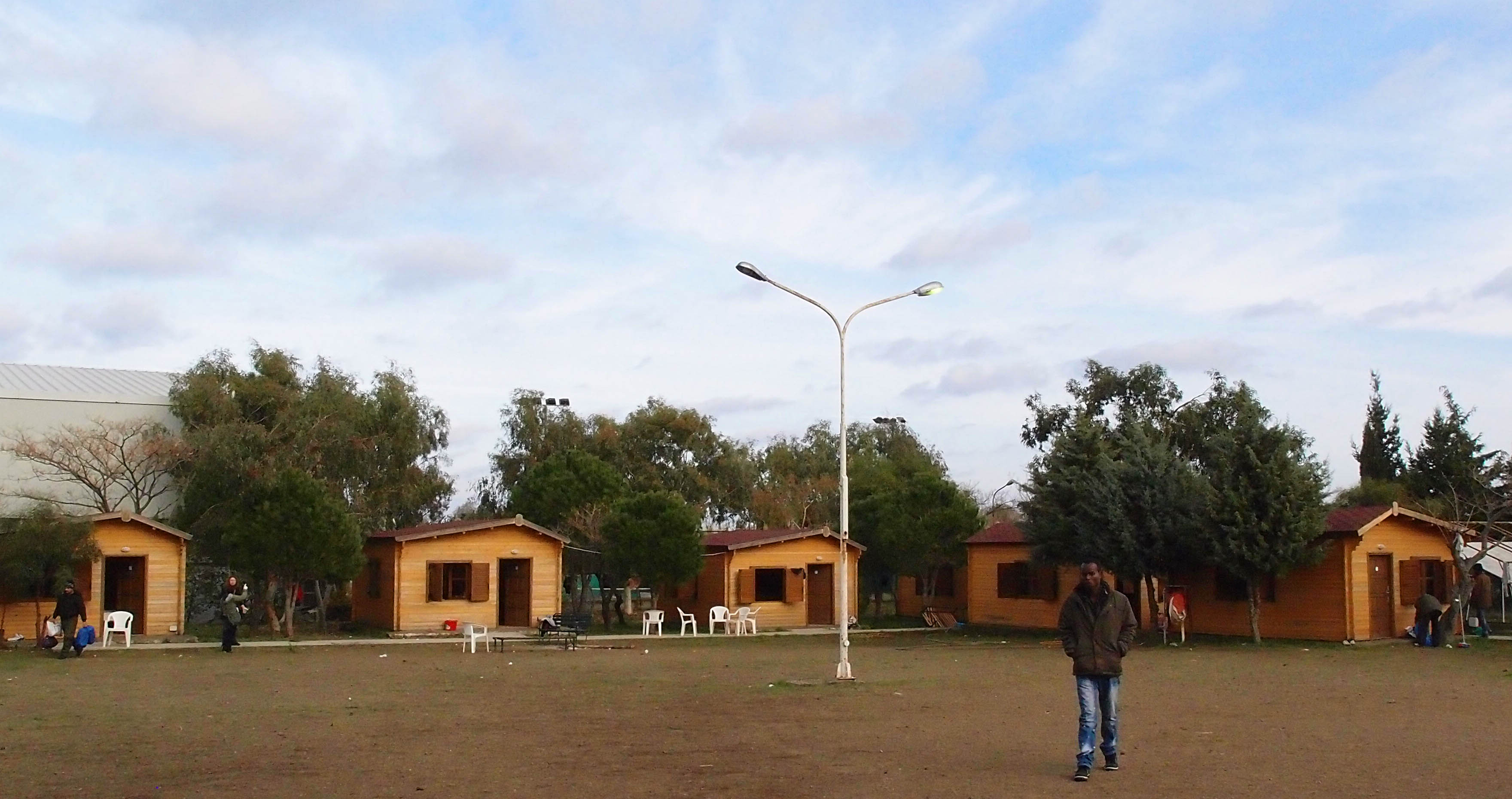Morias’ prison in Lesvos has opened
The first migrants have already been transferred there!
When you take a closer look you are stunned, you can’t get used to it. A naked space, that has been recently digged up,with four turrents around, crammed wth containers and with a high fence that seems to compress everything further more. The scenery of interdiction even here it’s made of the same, identical materials likewise in Amygdaleza, Corinth, Orestiada and in Pagani before.
Cement, wires, raised outposts, guns pointed at helpless people. Refugees and migrants sentenced to deprivation of their liberty for having committed no crime and without being taken to trial, are called to cope with their detention for an unspecified period of time.
The Minister of Public Order had already pre-announced the “work” in many occasions; in his last statement he precised that it will be completed by the end of 2013, but it will partially start operating in the end of August 2013. So, here we are in the end of September, where only some days before, workers were still trying to close up the holes in the empty prefabbricated and obviously used containers, from where water was already puring into them after the first rain of the season. There are 14 containters, of 33 square meters each, with 7 bunk beds, a small toilet and a small kitchen area. Till now, no aircondition or any other heating system was installed.
The outdoor space, which would serve as a courtyard, practically is a long corridor of 3X4 meters infront of each cointainer. There’s not a shelter to protect people from the sun or the rain. The temporary solution with the olive sheets raised in front of the containers, does not make things any better.
With some quick calculations we come to the following conclusions:
Interior spaces
7 bunk beds = 14 persons
33 sq.m – 3 sq.m for the kitchen and the bathroom = 30 sq.m
14 persons / 30 sq.m = a little more than 2 square meters for each person.
In this space, the refugees or migrants who will have the “luck” to be transferred there, will have to figure out how to cover all their needs and endure these conditions for weeks or even for moths.
Outdoor spaces
3X4= 12 sq.m for 14 persons, that is 0,85 sq.m of outdoor space for each person.
Based on the aforementioned elements, it is clear how Morias’ prison will function from now on. Even if the numbers improve, the policy of repression won’t change.
There’s only one demand, shared by even more people nowadays
NO to closed detention centers – YES to open reception centers with a short stay for migrants and free access for the volunteers
P.s The palestinian family shown below, stayed in Pikpa Lesvos for 11 days without being registered by the police or the port authorities. They just remembered them on Wednesday 25/9 when they emptied up PIKPA. Together with 8 afghans they are the first persons to be detained in Morias prison.

